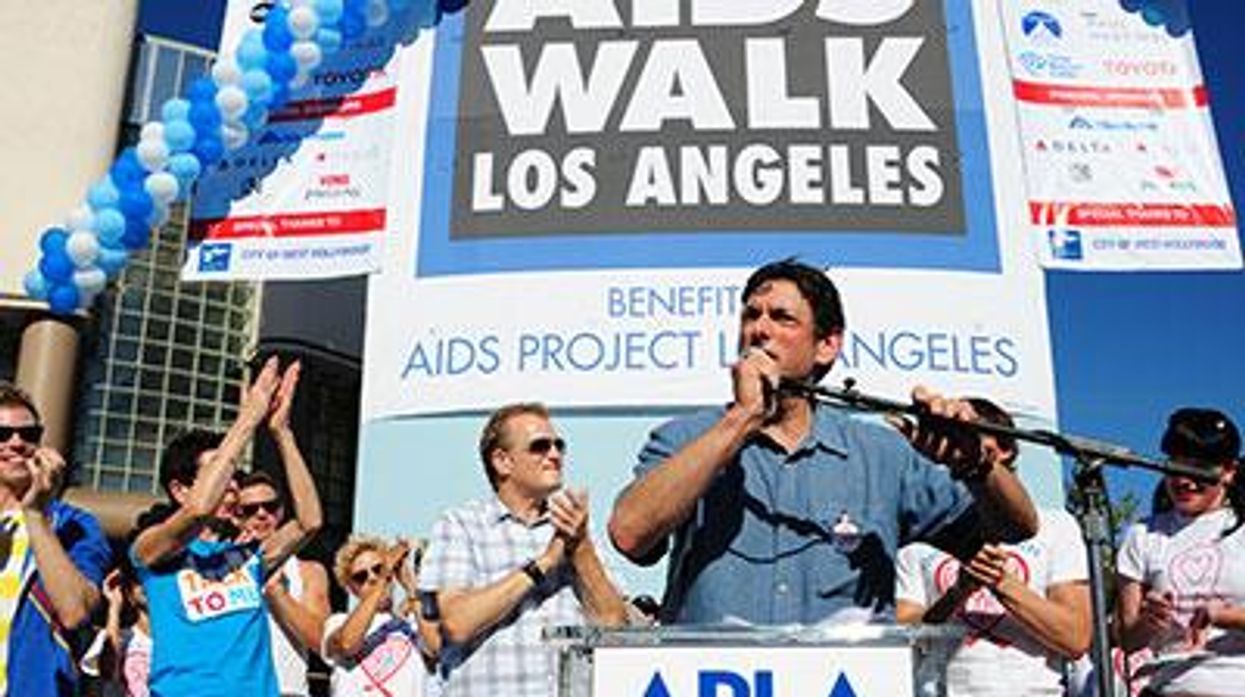Thirty years ago, being gay or even just perceived so posed challenges of bigotry far beyond what most LGBT people experience in our country today. Being gay wasn't easy back then. When AIDS and the fear of it were added into the equation, the difficulties compounded. Exponentially.
Back in the darkest days of the epidemic, AIDS led us to rethink what we could expect from one another -- coworkers, employers, landlords, neighbors, and passersby. Even one's own relatives and parents too often couldn't be counted on. What happens if I get sick? Will my family and friends stand by me? Will my doctor care for me? Will my government even acknowledge that this disease exists, that I exist, and that those contracting the disease are deserving of care, not callousness?
In 1985, as the too often horrifying answers to these questions loomed large, 4,500 courageous and visionary people (mostly gay men and lesbians, but also people of all orientations) took to the streets for the world's first walk to fight an epidemic -- AIDS Walk Los Angeles. Whether we walked for our friends, our partners, our children, or ourselves, we did so in the hope that one day -- oh, how we hoped that one day -- AIDS would be over. Gone. Banished.
Despite all the progress we have made to date, those who have devoted their lives to combating the disease are now confronting a disconcerting new reality: With the fight having lost so much public urgency in recent years, the chance to see an end to AIDS in our lifetime may well be slipping away.
Along with that loss of urgency come complications that threaten to undermine the 30 years of progress we have built. Of course, if you are among the tens of thousands newly diagnosed each year, it's urgent. If your T cells have begun to decline again, it's urgent. If you are hospitalized by the side effects of HIV medications or their inability to protect you from common infections, it's urgent. If you are among the tens of thousands of HIV-positive people who still must choose between safe housing, nutritious food, and quality health care, it's urgent.
These realities are emotional for those of us who watched so many die in pain and isolation while President Ronald Reagan sat silent, complicit -- propagating a vision of "Morning in America" while ignoring our mourning.
Those of us who lived through the early years of the epidemic remember how absolutely vital it was for We the People to act when They the Government would not. We are wary of the consequences to come for those still living with or at greatest risk for contracting HIV and developing AIDS if today's diminishing engagement fades away entirely.
That is why we walk. It is and always has been a choice for each of us. Do we hold fast to our aspiration for a world without AIDS or succumb to mass complacency? Do we fall back or step forward? It is a choice that each of us must make, with consequences that all of us must own.
For the 15,000 people who will die this year in the United States (an estimate from the Centers for Disease Control and Prevention) due to AIDS-related complications, the days of AIDS have not passed. We still do not have a cure. We do not know how much longer some treatments will remain effective. We do not know how many more children, parents, brothers, and sisters we will lose in the next 30 years. As many as one in six people who are living with HIV do not even know it.
What we do know, however, is that the strength and compassion of those who continue fighting AIDS is a lifesaving resource in and of itself. That's why joining AIDS Walk Los Angeles or the many events around the country modeled after it remains so important to this day. We choose to walk forward, not to fall back.
CRAIG R. MILLER is the founder of the AIDS Walks and a longtime senior organizer of AIDS Walk Los Angeles. He is also president of AIDS Community Action Foundation. To register for, or contribute to AIDS Walk Los Angeles, please call (213) 201-9255 (WALK) or visit AIDSWalk.net.















Charlie Kirk DID say stoning gay people was the 'perfect law' — and these other heinous quotes
These are some of his worst comments about LGBTQ+ people made by Charlie Kirk.